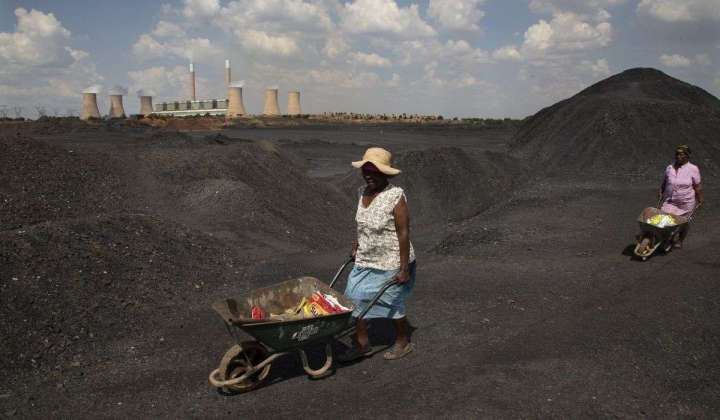U.N. doomsday report warns of ‘climate time-bomb’ unless globe ditches fossil fuels

The world is approaching a point of no return to combat climate change and prevent irreversible damage caused by global warming, a report released Monday by the United Nations concludes.
The warning from the U.N.’s Intergovernmental Panel on Climate Change is reminiscent of past doomsday rhetoric calling for immediate and extreme action that often draws skepticism from critics over the urgency of the problem.
“Humanity is on thin ice — and that ice is melting fast,” said U.N. Secretary-General António Guterres. “The climate time-bomb is ticking. But today’s IPCC report is a how-to guide to defuse the climate time-bomb. It is a survival guide for humanity.”
The assessment, the sixth in a series of findings by scientists who analyzed data and information already available on the climate, states that the rate of temperature increase in the last 50 years is the highest in 2,000 years and carbon dioxide is at its highest levels in at least 2 million years.
The ability to limit global warming to 1.5 degrees Celsius, or 2.7 degrees Fahrenheit, above pre-industrial levels as set by the Paris Climate Agreement is slipping from the realm of possibility, the report says. Emissions continue to increase year over year, an issue that the report said can be reversed by rapidly phasing out fossil fuels and moving up timetables to achieve net-zero emissions from 2050 to “as close as possible to 2040.”
“There is a rapidly closing window of opportunity to secure a livable and sustainable future for all,” the report states in a summary section for policymakers.
Mr. Guterres called for completely phasing out coal by 2030 in developed countries and 2040 in less developed ones; reaching net-zero electricity by 2035 for developed countries and 2040 for the rest of the world; ceasing new oil and natural gas projects; stopping any expansion of existing oil and gas reserves; shifting subsidies from fossil fuels to clean energy transition; and establishing a global phase down of existing oil and gas production by 2050.
The report also noted that less developed countries, which contribute the least to climate change, will be impacted the most and that the international community should direct money to those areas for mitigation efforts.
Although Democrats in Congress passed a tax and climate spending package last year that includes $370 billion for clean energy — dubbed the Inflation Reduction Act — green activists have accused President Biden of betraying his pledges on climate change by recently greenlighting a controversial oil drilling project on federal lands in Alaska known as Willow.
Environmentalists and left-leaning think tanks were quick to laud the U.N. climate report as a wake-up call for society.
“This report shows that averting a climate catastrophe is still within our reach, but only if world leaders swiftly transition to a 100% clean economy worldwide,” said Anne Christianson, director for International Climate at the Center for American Progress. “If we fail to act now, the health and safety of communities around the world is in doubt.”






